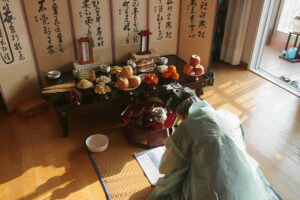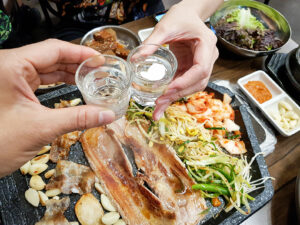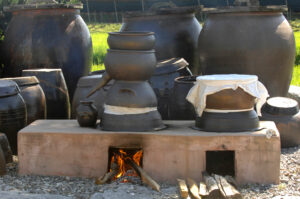Traditional Ceremonies and Ancestral Rites
In Korean culture, ancestral rites (known as jesa) are significant ceremonies that honor deceased family members. During these rites, Soju is often used as an offering to the ancestors. The act of pouring Soju on the ground or on the ancestral table symbolizes respect and remembrance. These ceremonies are an integral part of Korean heritage, and Soju’s role in them underscores its cultural importance.
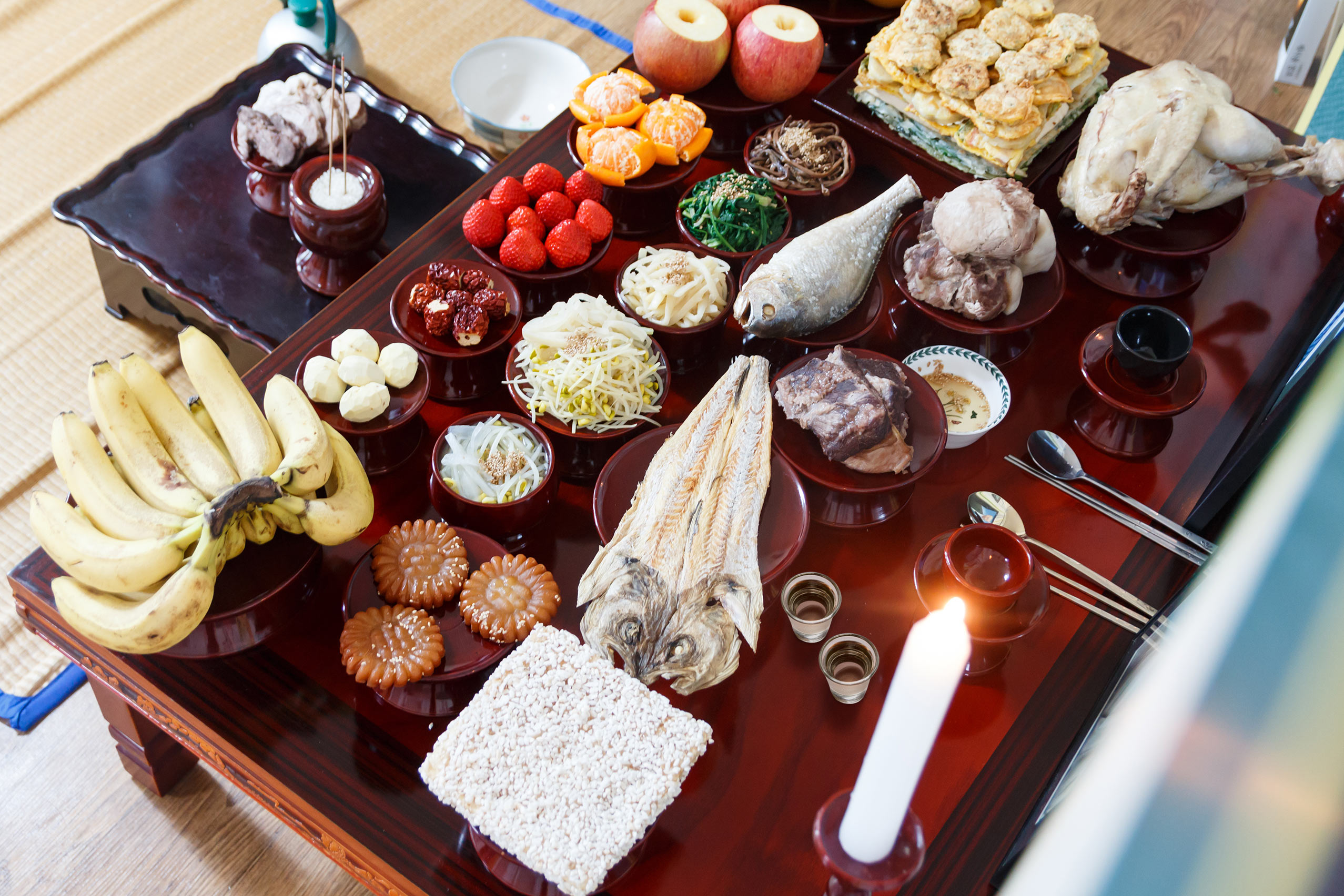
Weddings and Celebratory Toasts
Korean weddings are joyous occasions filled with rituals and traditions. One such tradition is the wedding toast, where Soju is often used. Newlyweds and their guests raise their glasses of Soju to toast to the couple’s future happiness and prosperity. This act of toasting with Soju not only celebrates the union but also brings people together in shared joy and celebration.
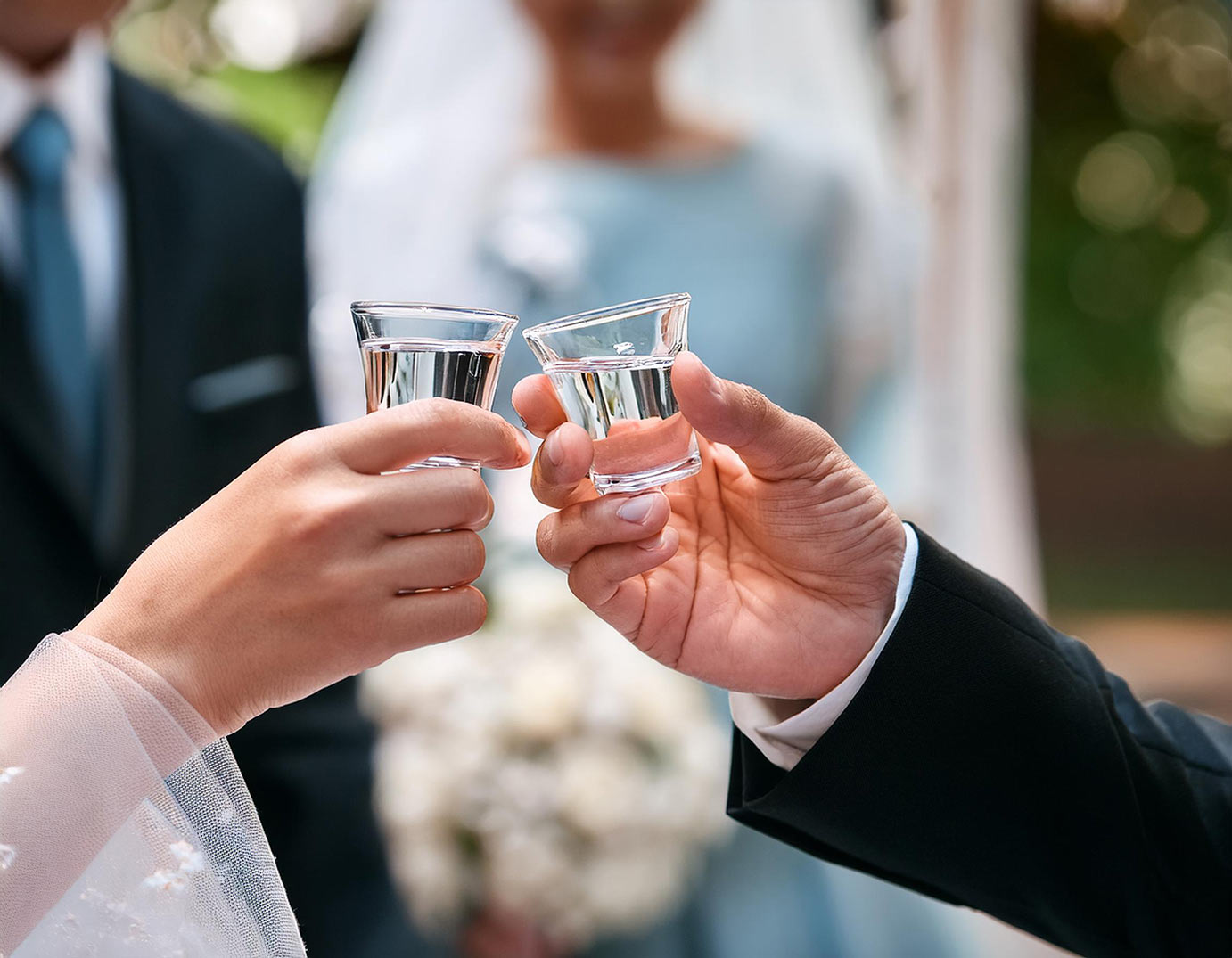
Festivals and Public Celebrations
Soju is a staple at many Korean festivals and public celebrations. Events such as Chuseok (Korean Thanksgiving) and Lunar New Year see families and friends coming together to celebrate with food, music, and of course, Soju. These festivals are times of gratitude, family bonding, and cultural expression, with Soju enhancing the festive atmosphere.
Cultural Events and Performances
During cultural events and traditional performances, Soju is often enjoyed by participants and spectators alike. For instance, during traditional Korean music and dance performances, Soju is shared among attendees, fostering a sense of community and enjoyment. This practice highlights Soju’s role in enhancing the cultural experience and bringing people together.
Soju in Modern Celebrations
In contemporary Korea, Soju continues to be a popular choice for celebrations. Birthdays, anniversaries, and achievements are often marked with a toast of Soju. Its presence at these events signifies good fortune and adds a touch of tradition to modern festivities. Even in corporate settings, Soju is a common feature at company dinners and celebrations, reflecting its enduring cultural significance.
Symbol of Unity and Togetherness
The act of sharing Soju is deeply rooted in Korean social customs. It is a symbol of unity and togetherness, whether among family members, friends, or colleagues. The ritual of pouring Soju for each other and sharing a drink fosters bonds and strengthens relationships. This practice is a testament to Soju’s role in promoting social harmony and collective joy.
Enhancing the Celebration Experience
Soju’s versatility makes it an ideal companion for various Korean dishes served during celebrations. Its ability to complement different flavors enhances the overall dining and celebration experience. Whether paired with traditional foods or modern fusion cuisine, Soju adds a layer of enjoyment to the festivities.
A Toast to Tradition and Joy
From ancient rituals to modern celebrations, Soju remains an integral part of Korean culture. Its presence in various celebrations and festivals symbolizes respect for tradition, the joy of togetherness, and the spirit of celebration. As we raise our glasses of Soju during these special occasions, we honor a cultural heritage that continues to bring people together in moments of joy and unity.
